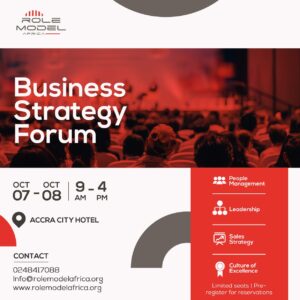
“Content is where I expect much of the real money will be made on the internet’ Bill Gates
American author Edward Abbey queried and responded “What is the essence of the art of writing? Part One: Have something to say. Part Two: Say it well.” Putting words together to make sense is one of the most difficult things to do.
Perhaps the most challenging is when the overarching goal is to be commercial with your information. Even for most professional and experienced writers, it is tough getting the first draft of their books composed and presenting it in a structure that makes people want to buy and or read.
As a corporate trainer and public speaker as well, I am not quick to distinguish between which is a much easier or difficult skill; speaking or writing. My observation how ever is that, most people who are even expressive on their verbal communication do not find it easy to put those words down on paper to make the same meaning as when spoken.

The content of a book is perhaps the crux of it. People buy books because of the information they contain. The fashion in which this information has been presented can be a game changer. It is therefore important for writers to take their time and create good content for their readers.
Whiles this material may be helpful for everyday guidance on writing, bloggers, authors, copywriters, ghostwriters and editors will to a large extent treasure this publication.
If you intend to make impact and or income with your writing, you will find these guidelines very instructive:
- Motive
Motive is your reason doing something. People don’t just wake up and do things. They have varied reasons for doing the things they do. It is the same with writing. You need to establish your goal and purpose for writing. You need to answer some salient questions. Why are you writing? Have you found a problem you want to solve? Do you want to make money with your material?
Let me set it into perspective. Manasseh Azure Awuni is known for writing to change things about governance and expose corruption. What is your motive for writing?
My book, ‘Career Advantage’ seeks to explain to employees what employers look out for when hiring people, and to also help employers understand their employees. Without a specific objective your writing may not serve a purpose.
- Target readers
Target readers are the people you hope to sell your books to, or the people who will read your posts or blogs. You should know the category of people you are writing for. Are you writing for kids, adults, a specific profession or field? Knowing this will inform your language, style, volume, layout and cover design.
Children like to read books that are interesting, with large font and pictures. Adults may prefer a more mature layout and wouldn’t bother so much about illustrative pictures. Therefore, know who your readers so you can write what they want.
My book ‘My First Lessons in Leadership’ available on Amazon and Sayda was written specifically for teens who aspire to be leaders, so I used youth-friendly language that teens can relate to. You may want to appreciate that publications for young people rarely use strong language and sexual innuendos.
- Authenticity
As the adage goes, ‘there is nothing new under the sun’. Whatever topic you are writing about, someone might have already written on it. Maybe not from the same angle or context as yours, but the information may still be the same. Therefore, check to see if you’re not reproducing someone’s already existing work.
Own your publication and make it as unique as possible.
Introduce a new idea, something peculiar to you. I noticed, for instance, that there were a lot of books on career guidance for students on the market, but I observed again thaat there is a gap on contents tailored to guide tertiary students on internships. So, I wrote ‘Hello Intern’ to help students learn how to secure, optimise and gain commendation for their internships. The value of this book has been optimised on www.everydayintern.com
- Niche area
A niche is a specialized segment of the market for a particular kind of product or service. You cannot talk about everything in the world. Identify a specific area you want your writings to focus on; fiction or non-fiction. If non-fiction, are you writing on health, business, leadership, motivation, or academia? Carve a niche and focus on that.
Rev. Albert and Mrs. Comfort Ocran write on personal development and business, Kojo Kwadwo Sheldon writes on entertainment, and that’s their niche. People usually tend to focus on areas they’re interested in or have a lot of knowledge in. You can first start by identifying your interests, and checking if you have enough knowledge to write about it.
On Facebook for instance people are intentional on who they follow and whose wall they visit daily. Godwin Martey will serve a blend of Christian, inspirational and business contents whiles the Sign Maker Selorm Betepe has mastered his craft in satire, comical and business posts. What is your niche?
- Writing style and language
Your style and language of writing must correspond with your purpose and must be appropriate for your target readers. Some topics require free language expression while some do not. Academic books are often straightforward and use little or no humour, whereas topics like entertainment or relationship may require some humorous allusions to make them interesting.
Use relevant quotations or citations where necessary to make your work more appealing. Inasmuch as you are allowed to express yourself freely, endeavour to avoid offensive and cultural or religiously inappropriate or sensitive words. People have found themselves pulling down their posts or apologising for publications that do not auger well for a certain demographic.
The use of gargantuan or ‘big words’ does not necessarily mean you are good at writing, do not compete with ‘El Lizato’ or ‘Papa Nii Oesophagus’. Use simple language with clarity to help your audience understand you. However, you may include a few rich synonyms to help your audience learn something new.
- Size
People are increasingly becoming busy and do not have the time to be reading big or long publications. In this fast-paced social media driven economy, grasping the attention of your audience should be fundamental. A long post, blog or book may not do the trick in most instances.
However, you may still opt for a voluminous publication, depending on the purpose and audience. Know how big or small you want your material to appear before you even start typing it.
Elikem Nutifafa Kuenyehia’s book, ‘Kuenyehia on Entrepreneurship’ has 671 pages with 14 long chapters. This is because it encompasses everything on entrepreneurship, and doesn’t just focus on one aspect; more like a complete guide for entrepreneurs (his purpose).
The Lady Bird books series publishes story books for children. Because their readers are kids, they print them in a few pages, large font and with illustrative pictures. Children do not have the patience to sit for long reading one book. Teens may endure for a while, but, unless the content really stirs their interest, they will leave it halfway.
Yet Manasseh will still write his long posts and articles and get good multiple viewers and Zion Felix and many other bloggers will do very brief contents and still get 100k views. The message is simple, know your target readers, know your purpose for writing, be authentic, use language that your readers can relate with and very importantly ensure you write what your targets can read. Welcome to creating contents that sell.
>>> writer is a corporate trainer, book publishing consultant and professional ghostwriter assisting busy executives to write and publish their books, articles, and speeches. He has served as Head of Protocol at a diplomatic mission, Corporate Affairs Officer at a French multinational agribusiness and as Events and Media Correspondent for a digital ad agency. You can contact the author via: [email protected]









